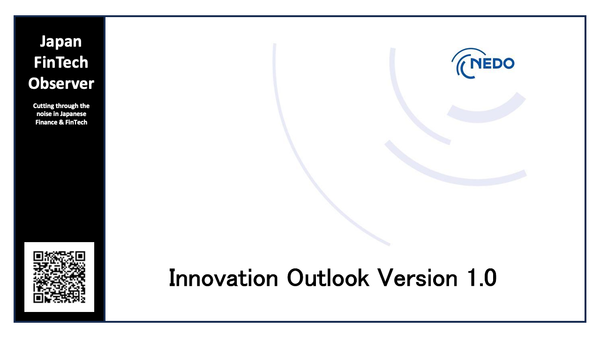The FSA’s “Requests for Tax Reform in FY2025”
The Financial Services Agency (FSA) has recently submitted its key requests for tax system reforms for the fiscal year 2025 (starting April…

The Financial Services Agency (FSA) has recently submitted its key requests for tax system reforms for the fiscal year 2025 (starting April 2025), focusing on promoting investment, improving social security, and facilitating a stable national life.
What caught the headlines in the crypto world is this single bullet point in Section 1.4:
The tax treatment of cryptocurrency trading needs further consideration, focusing on whether cryptocurrencies should be treated as investable financial assets.
Currently, digital assets are treated as “other income”, which limits loss offsets and taxes gains at the taxpayer’s marginal income tax rate (up to 55%). Treatment as an investable financial asset would put digital assets on par with securities.
1. Realization of the “Asset Income Doubling Plan” and “Asset Management Nation”
This section aims to encourage asset building and investment among Japanese citizens, primarily through enhancements to the NISA (Nippon Individual Savings Account) program and adjustments to the tax treatment of various financial instruments.
1.1 Enhancing NISA’s User-Friendliness
Current Situation and Issues:
- The new NISA system launched in January 2024 has seen significant adoption, with approximately 23.23 million accounts and 41 trillion yen in investments as of March 2024.
- Further simplification and streamlining of NISA procedures are needed to improve user experience and promote wider adoption. This includes simplifying the period update of KYC, enabling same-day purchase of assets when switching financial institutions, and reviewing the eligibility criteria for investment products like ETFs (Exchange Traded Funds).
Requests:
- Simplify the period update of KYC: Transition to digital confirmation of residency, eliminating the need for physical documentation.
- Enable same-day purchase when switching financial institutions: Streamline the transfer process, minimizing the downtime between selling assets in the old account and buying in the new one.
- Expand the range of ETFs eligible for the accumulation investment plan: Currently, only index-linked ETFs are permitted. The request is to allow actively managed ETFs, which became available for listing on the Tokyo Stock Exchange in June 2023.
- Review the minimum trading unit for ETFs: Currently set at 1,000 yen, which limits investment options. Lowering this threshold would allow more ETFs to be included and potentially reduce investment barriers.
1.2 Tax Measures Related to Corporate and Individual Pension Plan Revisions
Current Situation and Issues:
- Corporate and individual pension plans play a crucial role in securing income during retirement, supplementing the public pension system.
- The government aims to enhance these private pension schemes to promote asset formation among households.
- The “Basic Policy for Economic and Fiscal Management and Reform 2024” and the “Grand Design for New Capitalism” (both approved by the Cabinet on June 21, 2024) outline plans to reach conclusions on increasing contribution limits and raising the eligible age for starting pension withdrawals for the iDeCo (Individual-type Defined Contribution Pension Plan) in 2024. They also suggest exploring significant reforms, including increasing contribution limits.
Requests:
- Implement necessary tax measures to accommodate the revisions to corporate and individual pension plans, ensuring these reforms contribute effectively to stable household asset building.
1.3 Review of Requirements for Payment in Kind of Inheritance Tax with Listed Shares, etc.
Current Situation and Issues:
- The current inheritance tax law requires that payment in kind (using assets instead of cash) only be allowed when it’s difficult to pay in cash even with deferred payment. This limits the utilization of this option.
- Listed shares are easily liquidated by the government, making them suitable for payment in kind. With the aging population and the increasing number of inheritances involving elderly individuals, providing a more user-friendly tax payment environment is necessary.
- The current system, which evaluates inherited listed shares based on their market value at the time of inheritance, can incentivize preemptive selling to avoid potential losses from stock price fluctuations, potentially distorting investment choices.
Requests:
- Introduce special measures for payment in kind of inheritance tax using listed shares, etc. This would make it easier for taxpayers to utilize this option.
- Review the inheritance tax valuation method for listed shares, etc. This could potentially address the issue of preemptive selling driven by concerns about stock price volatility.
1.4 Integration of Taxation of Financial Income (Expansion of the Scope of Loss Offsetting for Financial Products)
Current Situation and Issues:
- The scope of loss offsetting (using losses from one investment to reduce taxes on gains from another) for financial products was expanded in January 2016 to include listed shares and specified public bonds.
- However, losses from derivative transactions and savings accounts are still not eligible for offsetting, hindering diversification in investment portfolios.
- Derivative transactions can be used for hedging and diversification, potentially contributing to the supply of growth capital from households and improving their asset formation. However, their usage by individual investors remains limited.
- The tax treatment of cryptocurrency trading needs further consideration, focusing on whether cryptocurrencies should be treated as investable financial assets.
Requests:
- Expand the scope of loss offsetting for financial products to include derivative transactions and savings accounts. This would encourage diversification and promote investment in a wider range of financial instruments.
2. Realization of an International Financial Center as a “Global and Asian International Financial Hub”
This section aims to bolster Japan’s position as a leading international financial center by making cross-border investment more attractive and efficient.
2.1 Review of Procedures Related to Tax Treaties, etc., for Promoting Cross-Border Investment
Current Situation and Issues:
- Japan’s tax treaties generally include provisions to reduce or exempt withholding tax on cross-border investments, aiming to promote bilateral investment.
- However, for cross-border investments made through funds, these treaty benefits typically require applications at the individual investor level, not the fund level. This creates a significant administrative burden when numerous investors are involved, making it challenging to utilize the treaty benefits.
- The application procedures for tax treaties often involve extensive paperwork and physical document submission, placing a burden on financial institutions (sub-custodians) and tax authorities in terms of document management.
Requests:
- Implement necessary measures to enable the application of tax treaty benefits at the fund level for cross-border investments made through funds. This would simplify the process and promote investment.
- Digitize and simplify procedures related to tax treaties for certain financial institutions, reducing administrative burdens and improving efficiency.
3. Realization of a Secure National Life
This section aims to enhance the social safety net and provide support for families, ensuring a sense of security for Japanese citizens.
3.1 Expansion of the Life Insurance Premium Deduction System
Current Situation and Issues:
- Families with children have various financial needs, including securing safe and comfortable housing and mitigating risks related to the primary income earner’s unexpected demise.
- To support families raising children, it’s necessary to adapt the life insurance premium deduction system to address these specific needs.
Requests:
- Implement the measures outlined in the “FY2024 Tax System Revision Outline” (Liberal Democratic Party and Komeito, December 14, 2023) regarding the “expansion of the life insurance premium deduction for households raising children.” Specifically, this entails:
- Increasing the general deduction limit for new life insurance premiums related to survivor benefits by 20,000 yen for households with dependents under 23 years old. Currently, the limit is 40,000 yen for income tax and 28,000 yen for local taxes.
3.2 Enhancement of the Catastrophe Reserve System for Fire Insurance, etc.
Current Situation and Issues:
- The catastrophe reserve held by non-life insurance companies has been under pressure due to the increasing frequency and severity of natural disasters, such as typhoons, heavy snow, and floods, leading to substantial insurance payouts in recent years. Measures are needed to ensure sufficient reserves are maintained.
Requests:
- Extend the increased tax-free accumulation rate for the “Fire and Wind/Flood Damage” and “Movable Property Comprehensive, Construction, Cargo, and Transportation” categories. This measure, set to expire at the end of FY2024, allows for a higher rate of tax-free accumulation of reserves.
- Unify the withdrawal unit for all insurance categories and raise the withdrawal trigger rate to 55% (currently 50%). This would expedite the replenishment of depleted reserves and prepare for potentially larger payouts in the future.
- Increase the tax-free accumulation rate (currently 10%) and the replacement guarantee rate (currently 30%) for the “Fire and Wind/Flood Damage” category. This would further strengthen the financial resilience of insurance companies against these specific risks.
4. Other Request Items
The document also lists several other requests, many of which are related to extending existing tax benefits or clarifying tax treatment in specific areas. These include:
- Extension of the tax exemption for capital gains on transfers related to the provision of personal assets by business owners for reconstruction efforts.
- Extension of tax benefits related to real estate acquisition by REITs and special purpose companies.
- Extension of tax benefits related to real estate acquisition by special business operators under real estate specific joint venture agreements.
- Expansion and extension of the gift tax exemption for lump-sum gifts for marriage and childbirth.
- Permanent or extended tax exemption on real estate acquisition tax for properties acquired by agreement banks from failed financial institutions and insurance companies.
- Extension of the stamp duty exemption for loan agreements related to special loans for COVID-19.
- Implementation of tax measures to facilitate spin-offs.
- Clarification regarding deductible interest expenses under the excessive interest deduction system.
- Consideration of international tax measures in light of the global geopolitical situation.
- Maintenance of the corporate income tax based on gross income for insurance companies.
- Increase in the inheritance tax exemption for death benefits from life insurance.
- Implementation of necessary tax measures related to the bank account numbering system and the provision of My Number information.
- Clarification of tax implications related to the revised trust accounting rules for beneficiary certificate issuing trusts.
- Implementation of tax measures related to the OECD’s new international tax rules.
- Implementation of tax measures related to the review of payment and market systems.
- Implementation of tax measures related to the review of regulations for the insurance industry.
- Implementation of tax measures related to sustainable finance.
These requests reflect the FSA’s priorities for the fiscal year 2025, focusing on creating a favorable environment for investment, strengthening social security systems, and ensuring stability and security for Japanese citizens in a rapidly changing global landscape. The specific details of these measures and their potential impact will be further discussed and potentially refined during the upcoming budget deliberations.
Please follow us to read more about Finance & FinTech in Japan, like hundreds of readers do every day. We invite you to also register for our short weekly digest, the “Japan FinTech Observer”, on Medium or on LinkedIn. Our global Finance & FinTech Podcast, “eXponential Finance” is also available through its own LinkedIn newsletter, or via our Podcast Page.
Should you live in Tokyo, or just pass through, please also join our meetup. In any case, our YouTube channel and LinkedIn page are there for you as well.




